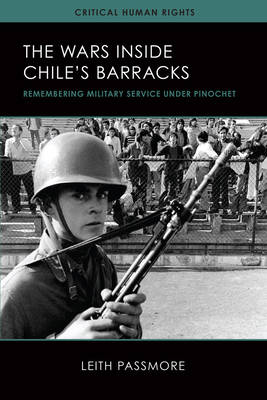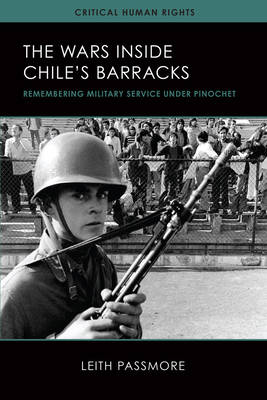
- Afhalen na 1 uur in een winkel met voorraad
- Gratis thuislevering in België vanaf € 30
- Ruim aanbod met 7 miljoen producten
- Afhalen na 1 uur in een winkel met voorraad
- Gratis thuislevering in België vanaf € 30
- Ruim aanbod met 7 miljoen producten
Zoeken
€ 101,95
+ 203 punten
Uitvoering
Omschrijving
From 1973 to 1990 in Chile, approximately 370,000 young men-mostly from impoverished backgrounds-were conscripted to serve as soldiers in Augusto Pinochet's violent regime. Some were brutal enforcers, but many themselves endured physical and psychological abuse, survival and torture training, arbitrary punishments, political persecution, and forced labor. Leith Passmore examines the emergence, in the early twenty-first century, of a movement of ex-conscripts seeking reparations. The former soldiers challenged the politics of memory that had shaped Chile's truth and reconciliation efforts, demanding recognition of their own broken families, ill health and incapacity to work, and damaged sense of self. Relying on unpublished material, testimony, interviews, and field notes, Passmore locates these individuals' narratives of victimhood at the intersection of long-term histories of patriotism, masculinity, and cyclical poverty. These accounts reveal in detail how Pinochet's war against his own citizens-as well as the "almost-wars" with neighboring Peru, Bolivia, and Argentina-were also waged inside Chile's army barracks.
Specificaties
Betrokkenen
- Auteur(s):
- Uitgeverij:
Inhoud
- Aantal bladzijden:
- 312
- Taal:
- Engels
- Reeks:
Eigenschappen
- Productcode (EAN):
- 9780299315207
- Verschijningsdatum:
- 28/11/2017
- Uitvoering:
- Hardcover
- Formaat:
- Genaaid
- Afmetingen:
- 155 mm x 231 mm
- Gewicht:
- 498 g

Alleen bij Standaard Boekhandel
+ 203 punten op je klantenkaart van Standaard Boekhandel
Beoordelingen
We publiceren alleen reviews die voldoen aan de voorwaarden voor reviews. Bekijk onze voorwaarden voor reviews.










